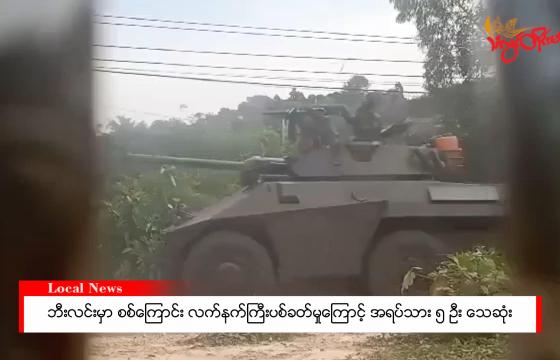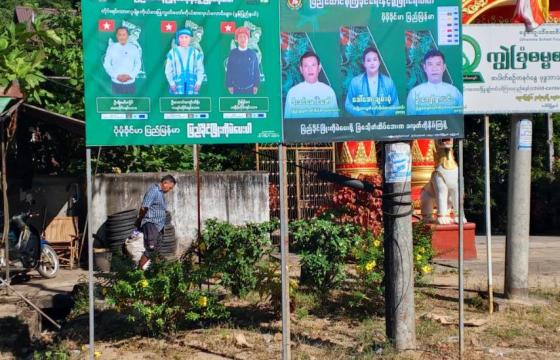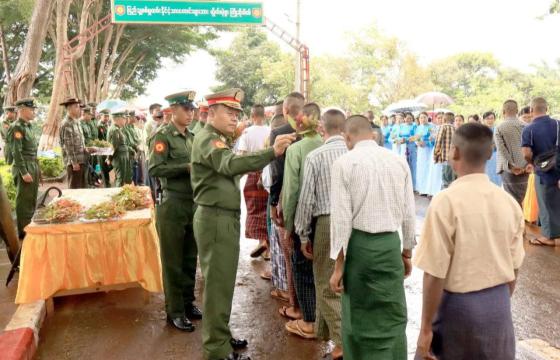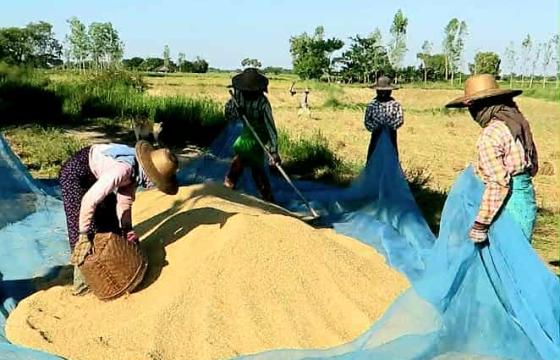U Kyaw Zaw, the NUG spokesperson for the President's Office, reported that discussions are underway with US government officials to secure support for Ethnic Armed Organizations (EAOs) and People's Defense Forces (PDF) in Myanmar under the framework of the Burma Act.
U Kyaw Zaw, the spokesperson for the President's Office of the National Unity Government (NUG), told the Than Lwin Times that the US government is currently deliberating on the implementation of the draft Burma Act and has not reached
a final decision, but discussions are underway to seek support for the act.
President Biden signed the National Defense Authorization Act (NDAA) for 2023 after the passage of the Burma Act in both houses of parliament towards the end of last year.
During the fiscal years 2023 to 2027, the Burma Act will offer non-military technology assistance to organizations actively engaged in promoting democracy, human rights, and federal democracy in Burma.
"Before deliberating on the implementation strategy for the draft, US government
officials are engaged in constructive discussions with key stakeholders of Myanmar, including the National Unity Government and various ethnic groups mentioned in the draft. These discussions aim to exchange perspectives, align our views, and explore the potential assistance that can be derived from the Burma Act, which we are actively pursuing. At present, the US government officials have not reached a final determination regarding the specific allocation, extent, and nature of the support they intend to extend," he said.
As of today, five months after the signing of the Burma Act, the implementation of aid to support Ethnic Armed Organizations (EAOs) and revolutionary forces has not been initiated.
In relation to the Burma Act, the U.S. government is required to collaborate with the pertinent parliamentary committees in the Senate and House of Representatives, along with the respective ministries. The National Unity Government (NUG) has stated that it has submitted the required elements as outlined by the relevant ministries, adhering to the planned procedure.
U Kyaw Zaw added that in the near future, it is anticipated that the US government will unveil a detailed policy outlining the amount of aid to be provided. Furthermore, once the aid is received, they are ready to collaborate with the recipient organizations, and swiftly deliver it to the affected areas and communities in need.
"In the expected timeframe, the United States will unveil precise information regarding the magnitude of aid it intends to provide, the designated locations where it will be utilized, and the organizations through which it will be channeled. The determination of this timeline falls under the purview of the responsible ministries within the United States government, as they work in coordination with the relevant parliamentary committees in the House of Representatives and the Senate. While we anticipate this information to be disclosed, we are unable to provide an exact timeframe at present," he said.
The Burma Act encompasses programs aimed at providing support to various entities, including the National Unity Government (NUG), the National Unity Consultative Council (NUCC), the Committee Representing Pyidaungsu Hluttaw (CRPH), as well as individuals who have actively participated in the non-violent Civil Disobedience Movement (CDM).
Additionally, the Burma Act also includes provisions for extending support to ex-military personnel who joined the Civil Disobedience Movement (CDM) as a means to promote the reinstatement of civilian rule and oppose the military coup.
On December 27 of last year, the Ministry of Foreign Affairs of the Military Council declared that the National Defense Authorization Act (NDAA) of the US government, which implements the Burma Act concerning Myanmar affairs, infringes upon the nation’s sovereignty.






